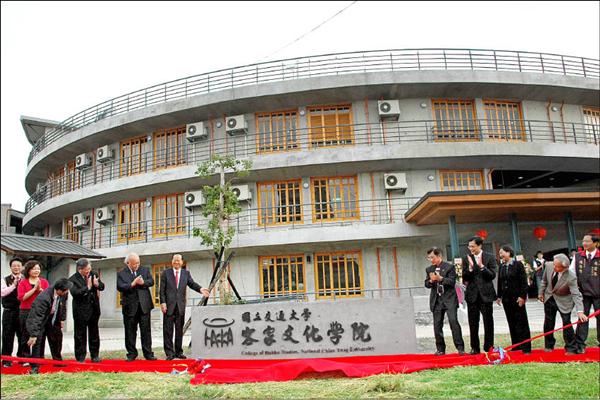Visions and Goals

Taiwan is a multicultural society and one of the priority policy issues of Taiwan is to promote multi-ethnic cultures. The development of multi-ethnic cultures is also an important indicator for measuring democracy and open society. In recent years, multiculturalism has been frequently discussed in advanced countries and areas, and has become an ideal worthy of pursuit. The resource allocation for education and academics is not only helpful to the fundamental appreciation and development of a pluralistic society, but also a harbinger of hope for preserving multi-ethnic heritage.
The National Chiao Tung University (NCTU) is located in a center place adjacent to the towns and cities in Taoyuan, Hsinchu and Miaoli where clusters of Hakka communities were formed centuries ago. Since the university was reestablished in 1958, it has been working closely with the Hakka communities of Taoyuan, Hsinchu and Miaoli. In 2000, the central government set up a policy aiming to establish colleges/universities of Hakka studies. Also, the Hsinchu County, where the largest proportion of the Hakka population inhabits, had high expectations from such a charter institution. To achieve the objectives of the central government’s policy, to meet the expectations of the Hsinchu County Government and to promote academic development, NCTU submitted to the
Ministry of Education (MOE) an application for establishing a College for Hakka Studies and pledged that such a College will and can develop into a world-class academic and policy research center.


